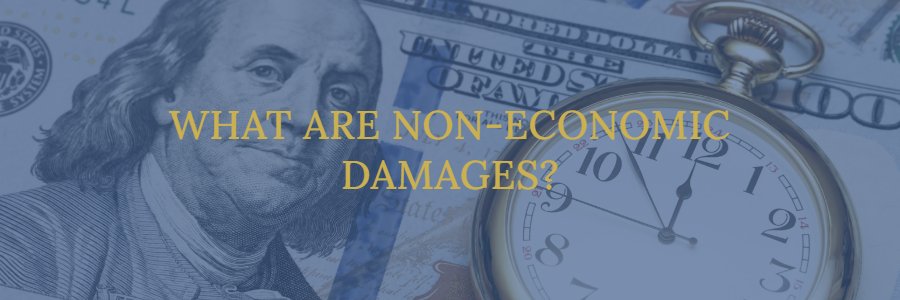What Are Noneconomic Damages?
During a personal injury claim in New Jersey, the person who is bringing the claim can seek a monetary recovery for both the financial and personal losses associated with an accident. The legal term for personal, nonfinancial losses is “noneconomic damages,” also known as intangible or general damages. Including noneconomic damages in a personal injury claim can increase the value of your case.
What’s the Difference Between Economic and Noneconomic Damages?
Noneconomic damages and its counterpart, economic damages, make up the two types of compensatory damages. Compensatory damages are granted in a personal injury case to make a victim whole again. The other type of damages, punitive damages, serve to punish a defendant for especially wrongful acts, rather than to reimburse a victim. Punitive damages are much less common than compensatory.
Within compensatory damages, economic damages are the financial compensation that a party can receive to make up for monetary losses suffered because of an accident or injury. They can include medical bills, losses of income and earning ability, property damage, rehabilitation, physical therapy, travel costs, legal fees, and other out-of-pocket expenses. It is possible for a victim to recover economic damages for both past expenses and future foreseeable costs.
Noneconomic damages pay a victim for the personal side of a personal injury case. This type of financial compensation acknowledges the losses and lifestyle changes that go beyond financial expenses after an accident. Noneconomic damages often include physical pain, suffering, emotional distress, mental anguish, depression, anxiety, inconvenience, lost enjoyment of activities, damage to reputation, lost quality of life, scarring or disfigurement, and loss of consortium.

How Can You Prove Noneconomic Damages?
Economic damages are often calculated and proven using hard evidence, such as bills and receipts connected to the accident. Noneconomic damages, on the other hand, do not leave a paper trail. They are the invisible or intangible ways in which the victim was affected by the accident. This makes them more difficult to prove during a personal injury case.
Rather than receipts and financial documentation, a victim may need to provide evidence such as an injury journal, testimony from friends and family members, and mental health diagnoses to prove noneconomic damages. The courts will generally calculate noneconomic damages based on the jury’s impression of how significantly the accident and injury impacted the victim’s life.
Can Attorneys Help Recover Higher Economic and Noneconomic Damages?
The value of a personal injury case in New Jersey is based on facts that are specific and unique to the case, such as the severity of the victim’s injuries and his or her prognosis for recovery. That being said, some control over the final settlement or judgment award can rest with a victim’s attorney. The experience that a lawyer has in handling personal injury cases and insurance companies is beneficial to a claimant in the pursuit of compensation.
A knowledgeable personal injury lawyer can help a victim recover maximum financial compensation. A lawyer will have connections to qualified experts, for example, who can strengthen a case. A lawyer will also have aggressive legal strategies to use when going up against insurance companies, increasing the odds of achieving a fair settlement agreement. If the insurance company refuses to make a reasonable offer, a lawyer can take the case to trial for better results.
Statistics show that even after deducting attorney’s fees, personal injury claimants who hire lawyers achieve higher payouts than those without lawyers. Insurance companies are more likely to treat you fairly and offer a higher settlement after you hire an attorney to represent you. To find out how much your case might be worth in both economic and noneconomic damages, contact a personal injury lawyer in New Jersey at the Law Offices of Jeffrey S. Hasson, P.C. to request a free consultation.
